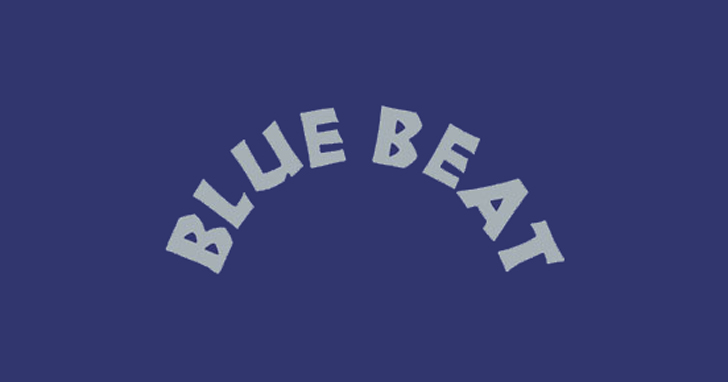The year is 1960. Melodisc, a label formed in 1947 synonymous with the importation of calypso and American jazz, has launched a sub-label that would come to be known as ‘Blue Beat’ releasing Jamaican R&B influenced by the American scene. Unbeknownst to them it would be the release of a track by the legendary artist Laurel Aitken and its subsequent reaction that would launch them into their legendary status as a ska label.
But why the ‘Blue Beat’ name?
Well, to quote the label boss Sigmund ‘Siggy’ Jackson “It sounds like blues and it’s got a great beat.” Additionally, at the time of the inception of the label, the generic term for Jamaican blues was ‘Blues Beat’ and thus its name came to be.
Blue Beat, Mods, and Skinheads.
To the Mods Blue Beat ingrained itself in the the mod psyche through the clubs they so often danced in with nights like that of ‘Siggy’ Jackson’s Blue Beat Night at the infamous Marquee Club. As well as this the blue beat ska began to be played alongside the soul music at clubs like the Twisted Wheel cementing its legacy in the dancefloors of these young mods. The interweaving of the West Indian community into Mod culture further aided this growth of Blue Beat with the ska music released on the label gaining popularity on the dancefloors of Mod Britain as well as the artists on the labels themselves. Most notably Prince Busters ‘Wash-Wash’ shows this addition of Blue Beat, not just in Mod Culture but the British music scene too with the songs London recording session involving none of than Georgie Fame, a singer very popular in the mod scene. However, most notably this made Georgie fame one of the first non-Jamiacans to cross over into ska.
To the Skinheads, the Blue Beat label was instrumental in their culture with the domination of ska in the early days of skinheads adopted from the Mods. Songs, like that of ‘Al Capone’ by Prince Buster, from the Blue Beat label became highly collectible. Despite the label coming to an end in 1966 Skinheads continued to value the music with artists like that of Prince Buster retaining relevance through to the 1979 revival brought on by the two-tone movement. Madness, one of the most prominent bands of the two-tone scene, released their debut single ‘The Prince’ in 1979 as an homage to the Prince himself as well as the label that released his music.
To this day Blue Beats’ legacy is still visible in the Mod and Skinhead culture with the 60s Jamaican R&B still filling the dance floor and playing on Sound systems across the world. Despite only being a sub-label Blue Beat has firmly stood its ground, not only in our subcultures but also within the rich tapestry that is Ska and Jamaican music.
